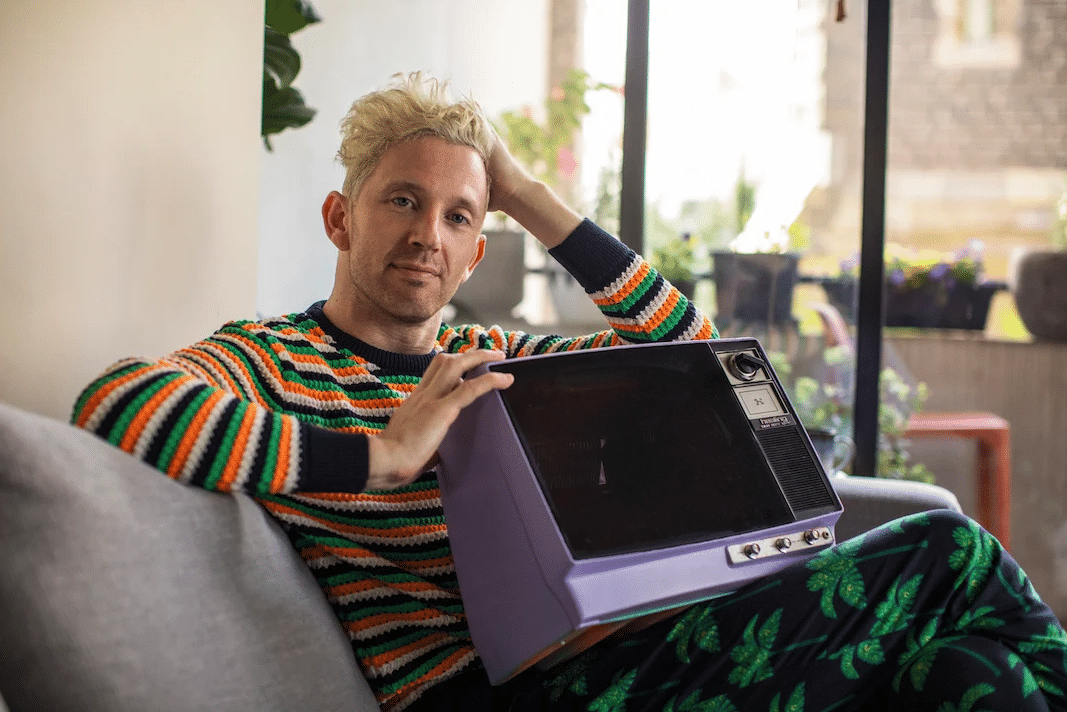Mitch McTaggart is the best thing to happen to Australian television in years. Smart, funny, and clearly interested in both the history and the methods of the medium, since 2019 – first on Channel 31, then SBS, and now Binge – he’s presented a series of programs putting the local product and industry under the microscope … to use the kind of cliché he’d single out and mock.
Branching out from his yearly review show The Last Year of Television, The Back Side of Television unearths the strange stories and grim trends in the dustier corners of the business. Whether you’re interested in behind-the-scenes goings-on, looking for tired tropes to get a richly deserved – but never gratuitous – kicking, or just want to watch some weird shit from the archives, it’s must-see TV. Really got to lay off those clichés.
The first episode of the current run takes in a range of Australian television’s failings, from the demise of opening title sequences and their associated theme songs through the fizzle that was commercial television’s Anzac programming during Gallipoli’s hundred year anniversary to the way Nine actively sabotaged what should have been a hit co-production in locally made SF series Farscape. Can Australian television get anything right? Over the following episodes, the answer is largely ‘nope’.
Foot in it
McTaggart is clearly a fan of television. One of the series’ many pleasures is the way he’ll often avoid the obvious take-down in favour of treating the viewer like an adult who understands things like ‘commercial pressures’ and ‘ratings’. This series never comes off as dismissive or sneering in its attitude toward the medium. It’s just that Australia keeps putting its foot in it.
Read: What to watch in July: new to streaming, cinemas and film festivals near you
As to why, eventually a pattern begins to emerge, especially as later episodes largely focus on one main subject. Whether it’s news, or childrens’ television, or games shows, management often aren’t great at what they’re doing – unless what they’re doing tends to be actively evil.
The second episode features what we’ve all been waiting for: a half hour takedown of Play School. Well, not the show itself, beloved institution that it is. Coming off worse are the producers behind it, who seem to have spent pretty much all of their time attacking their perceived rivals, including Sesame Street and local production Lift-Off.
You’ll be surprised at the viciousness, then depressed by the blatant cash-grab that is Bananas in Pyjamas (complete with the now standard moment where their creator gets nothing while his creations make hundreds of millions for a corporation).
After that there’s a fairly bleak look at the way TV news has gone from being relatively sedate and informative to a constant howl of terror based on community crime committed by ‘thugs’ (which one US academic calls ‘the polite n-word’). Episode four mostly looks at the brief flicker of hope that was kids TV in the 80s before the commercial networks teamed up to reassert their authority – blame Fat Cat for that – while episode five takes on a network war over televised Bingo (well, not strictly bingo as such) that ran for 50 years.
Comedy doco
It’s billed as a comedy, which is possibly a little misleading; with this and The Betoota Advocate Presents, we may need a new category along the lines of ‘comedy documentary’. But there’s still a lot here to laugh at – or just watch with your jaw hanging open in shock, such as the misguided attempt to create a kids sitcom that was Carrots. Hats off to McTaggart and his research team (which may very well have just been him going through the archives), as there’s a lot of material here that’s worth the price of admission (a subscription to Binge) alone.
Read: The Betoota Advocate Presents review: irreverent explainers surprise and delight
This isn’t a review show like The Last Year of Television, and there’s no obligation to focus on the good – though McTaggart does have a lot of time for 80s telemovie Shark’s Paradise here, and rightly so. But The Back Side of Television isn’t looking down on it subject either. At worst there’s a sense of incredulity at what’s being discussed, as in a story that touches on something awful the AFL Footy Show did that wasn’t racist (‘chaos really is the holy grail of live television’).
Quick-witted, thoughtful and incisive, this is a thoroughly entertaining look at the bizarre and fatally flawed side of Australian television, full of long-running feuds, dark secrets, and a montage of the amazing number of times one character asks another ‘are you ok’ on the 2014 mini-series Secrets & Lies.
Oh, and episode six is largely about a much-respected newsreader and game show host who may very well have been behind a high-profile armed robbery at his own network.
All six episodes of The Back Side of Television are now available on Binge.
Actors:
Director:
Format:
Country:
Release:





